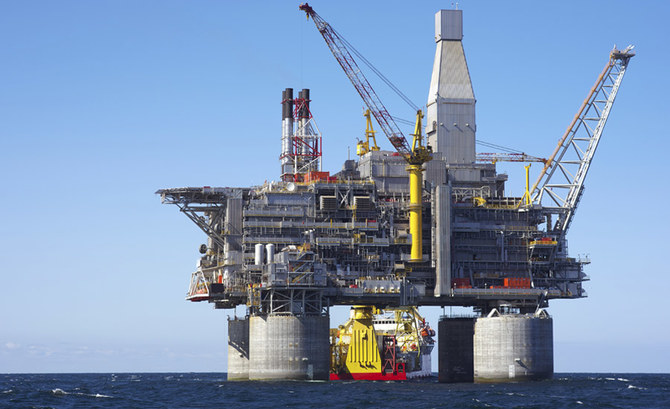RIYADH: The Organization of the Petroleum Exporting Countries on Monday trimmed its world oil demand growth forecast for 2021 while maintaining its 2022 view.
Its monthly report, however, said surging natural gas prices could boost demand for oil products as end users switch.
Oil prices were flat on Wednesday after erasing earlier losses as surging fuel costs for power generation offset expectations that demand growth will fall as a result of major economies being under strain from inflation and supply chain issues.
Brent futures fell 9 cents, or 0.1 percent, to $83.33 a barrel by 11:29 a.m. EDT (1529 GMT), while US West Texas Intermediate crude rose 4 cents, or 0.1 percent, to $80.68.
That puts WTI on track to close at its highest since October 2014 for a fourth day in a row and keeps the US benchmark trading in overbought territory.
Prices had come under pressure on Wednesday, when China, the world’s biggest crude importer, released data showing September imports fell 15 percent from a year earlier.
China, along with Europe and India, faces coal and natural gas shortages that have pushed up prices for the fuels burned for electricity generation and are leading to oil products being used as a substitute.
OPEC now expects oil demand to grow by 5.82 million barrels per day, (bpd), down from 5.96 million bpd in its previous forecast, saying that the downward revision was mainly driven by data for the first three quarters of the year.
It maintained a growth forecast of 4.2 million bpd for next year.
The group said, however, that natural gas prices at record highs could provide a potential boost to oil demand growth as industrial users switch to oil products instead.
“Should this trend continue, fuels such as fuel oil, diesel, and naphtha could see support, driven by higher demand for power generation, refining and petrochemical use,” OPEC said.
Saudi Aramco CEO Amin Nasser last week put the demand boost from the gas-to-oil switch at about 500,000 bpd.
OPEC+, an alliance between OPEC and other producers led by Russia, this month agreed to stick with its plan for a 400,000 bpd production increase for November as it gradually unwinds output cuts it made to support previously low prices.
In its report, OPEC raised its forecast for 2021 demand for OPEC crude oil by 100,000 bpd to 27.8 million bpd and by another 100,000 bpd for 2022 to 28.8 million bpd.
It said that OPEC’s output in September rose by about 490,000 bpd to 27.33 million bpd, according to secondary sources.
In a sign of a tightening oil market, OPEC said that OECD commercial oil inventories fell by 19.5 million barrels in August from the previous month to 2.855 billion barrels, according to preliminary data.
This figure is 183 million barrels below the latest five-year average and 131 million barrels below the 2015-2019 average, OPEC said.

























